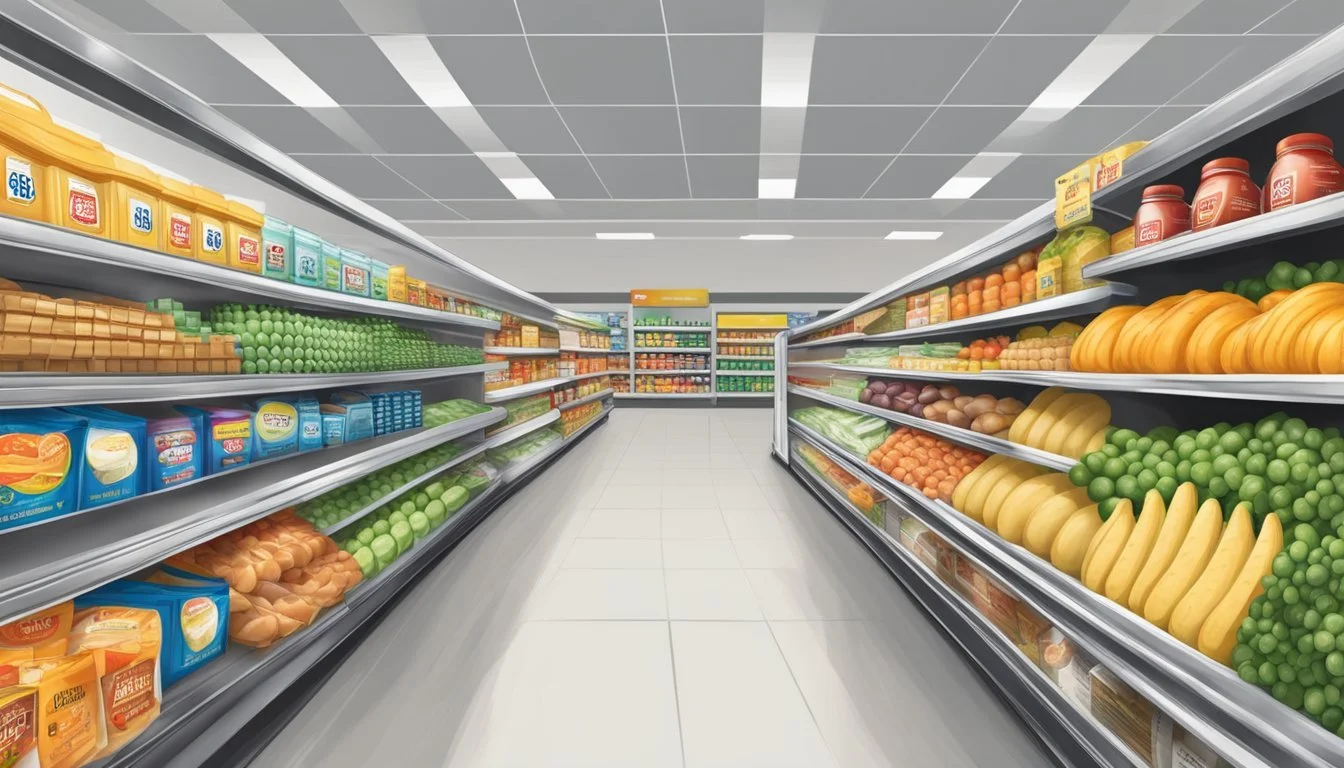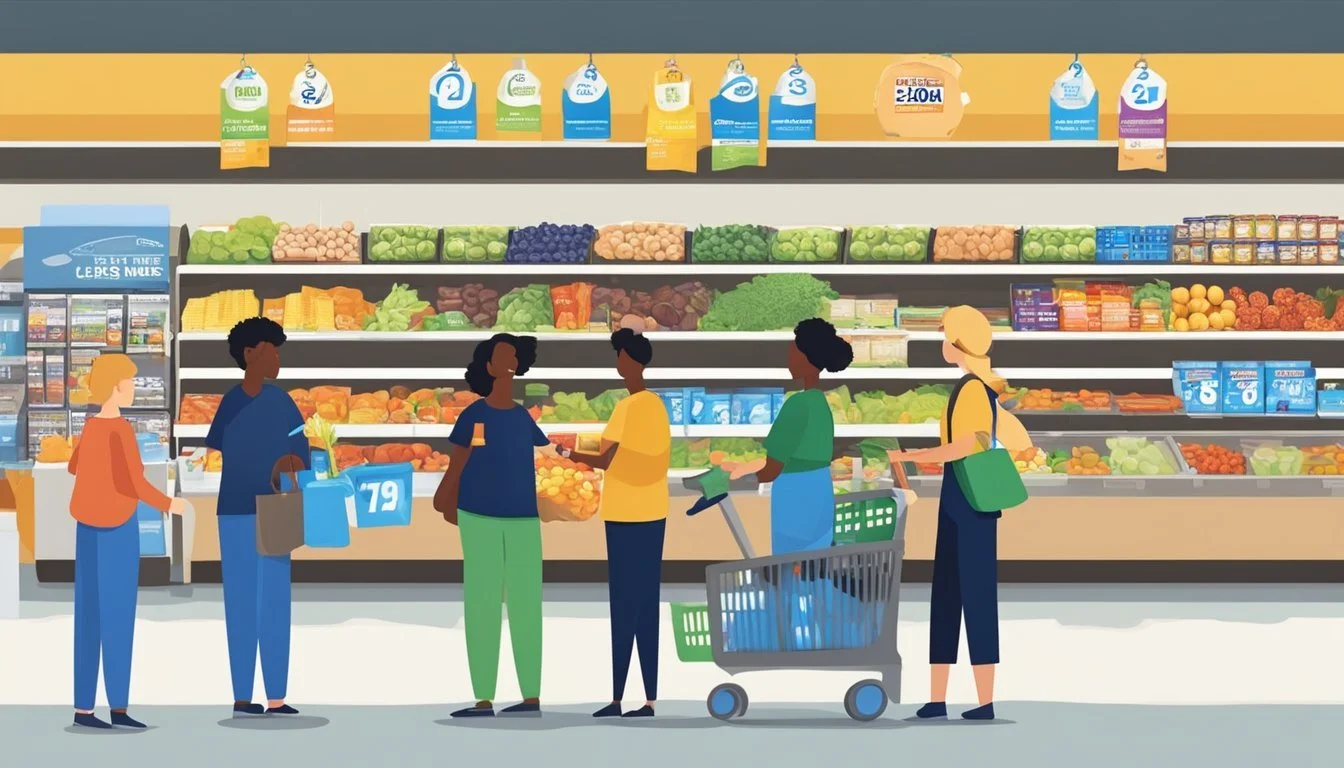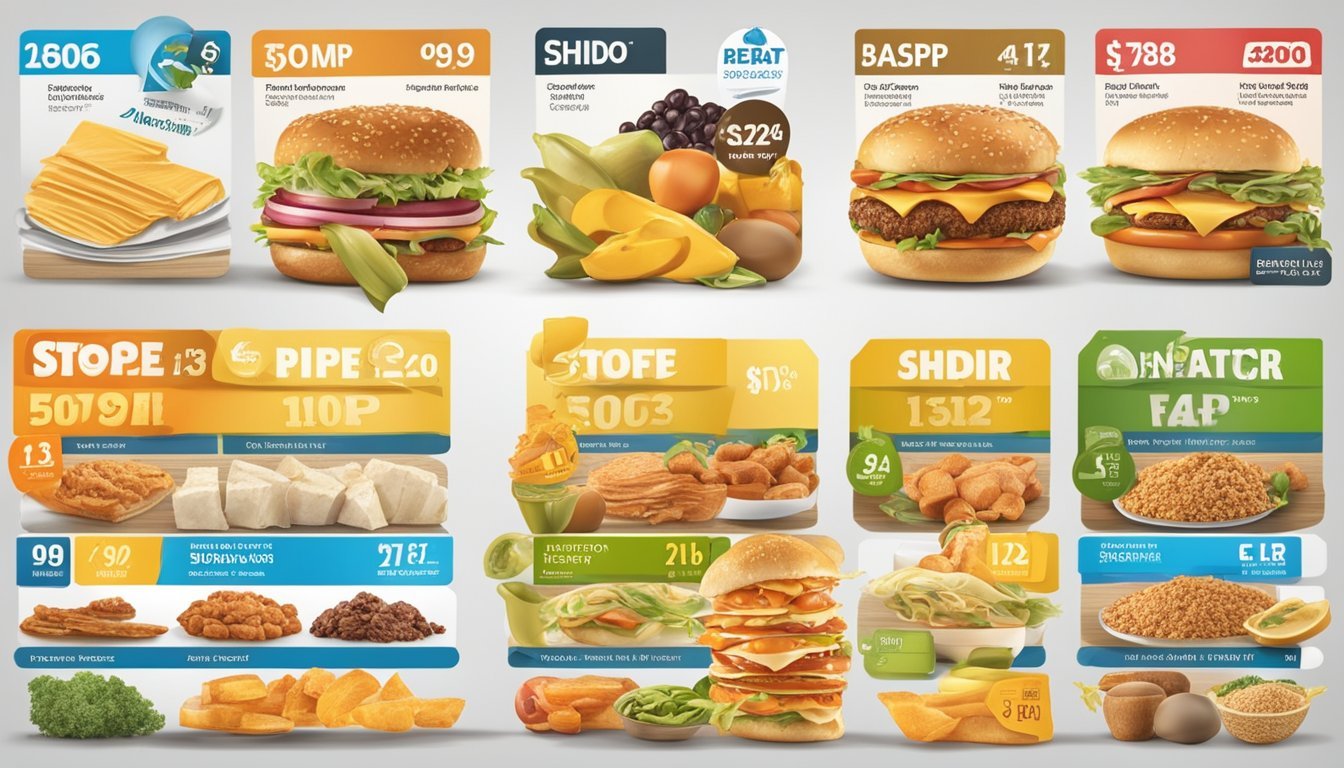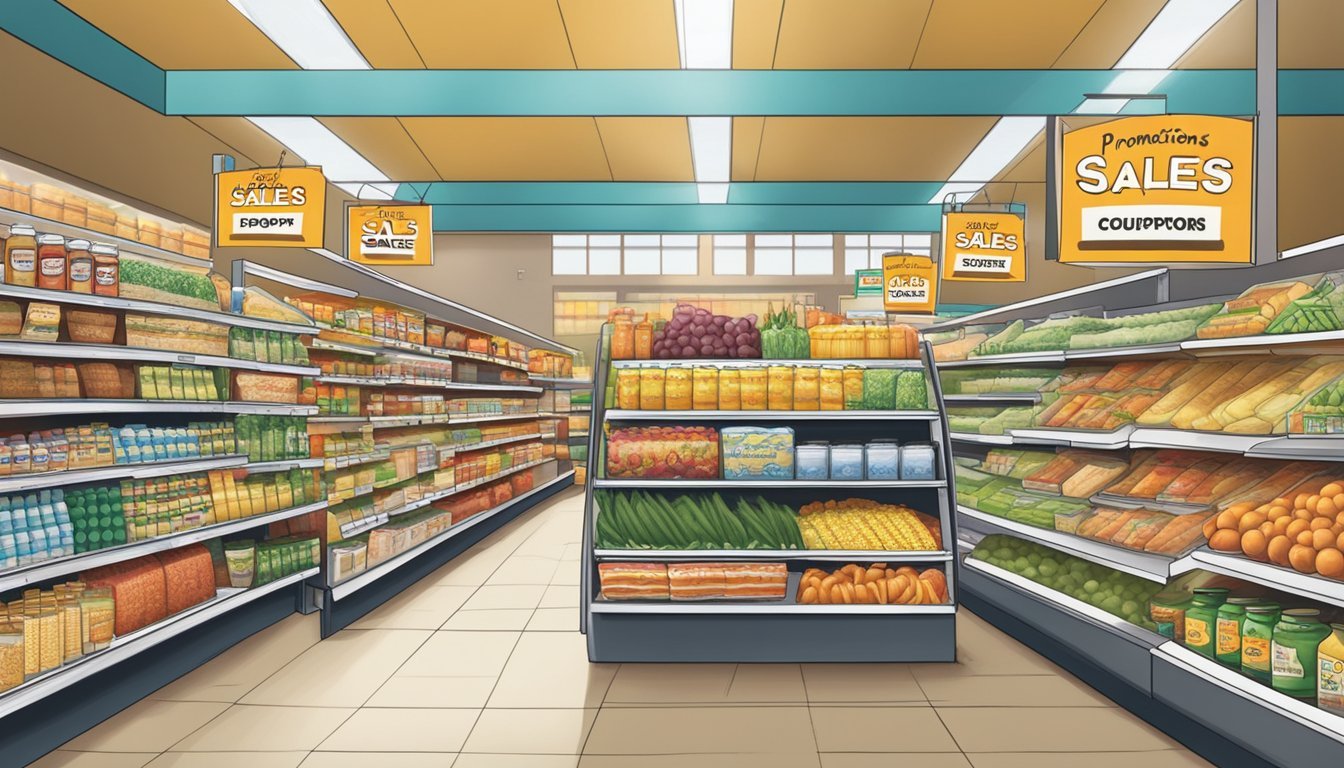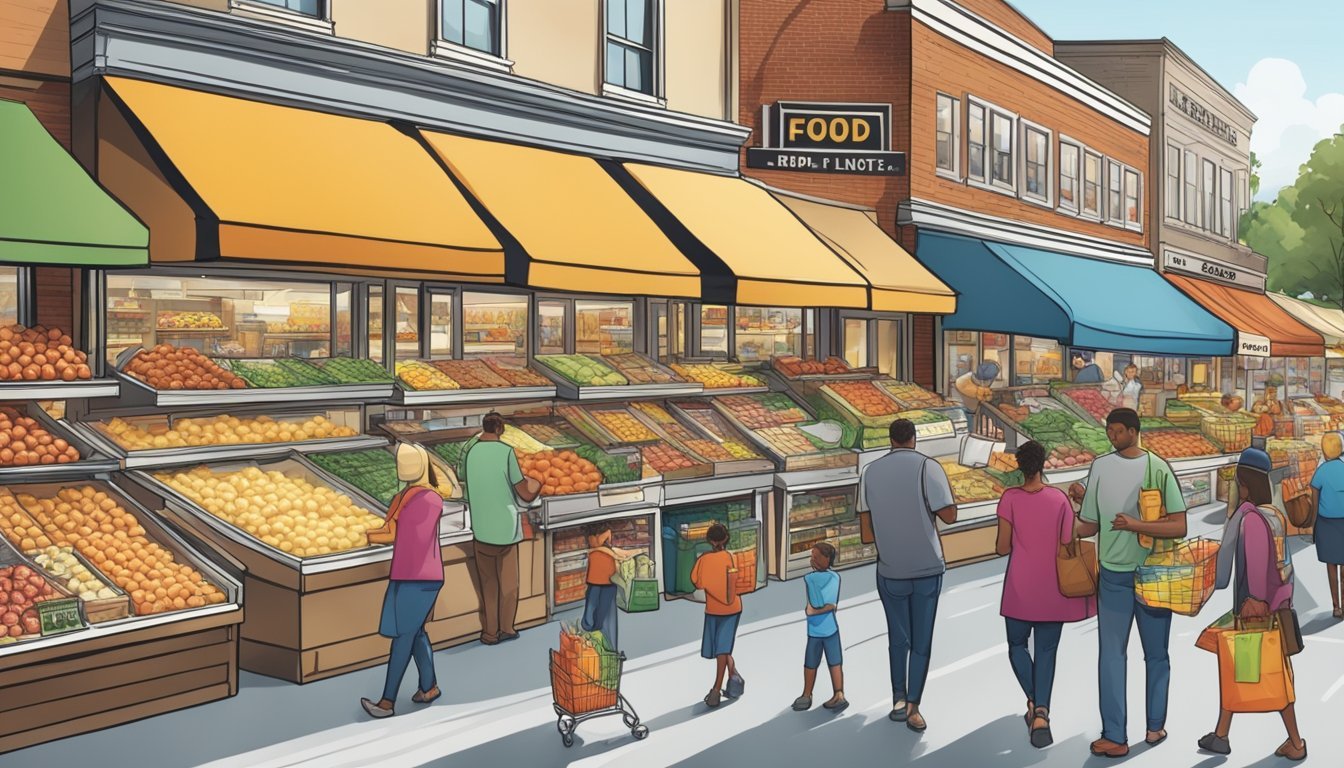Is Food Lion Cheaper Than Shoprite?
A Price Comparison of Two Popular Supermarkets
Grocery shopping can be a significant expense for many households, prompting consumers to seek out the most affordable options. Food Lion and ShopRite are two popular supermarket chains that often compete for budget-conscious shoppers. Based on available data, Food Lion generally offers lower prices than ShopRite, with savings typically ranging from 12% to 30% below average market prices.
Price comparisons between grocery stores can vary depending on location and specific items purchased. While Food Lion consistently ranks as one of the more affordable options, ShopRite has been known to offer competitive prices on certain products and through their promotional deals. Both stores have loyal customer bases who appreciate their respective pricing strategies and product offerings.
When choosing between Food Lion and ShopRite, shoppers should consider factors beyond just price. These may include store location, product quality, variety of items available, and any additional services or loyalty programs offered. Ultimately, the best choice for each individual or family will depend on their specific needs and preferences.
Overview of Food Lion and Shoprite
Food Lion and Shoprite are prominent supermarket chains operating in different regions of the United States. They cater to diverse customer bases with distinct business models and market strategies.
Company Histories
Food Lion began as Food Town in 1957 in Salisbury, North Carolina. The company rebranded to Food Lion in 1983 and expanded rapidly across the Southeast. It now operates as a subsidiary of Ahold Delhaize, a Dutch-Belgian retail company.
Shoprite's roots trace back to 1946 when a group of independent grocers formed Wakefern Food Corporation. The Shoprite brand emerged in 1951 as a cooperative, allowing member stores to pool resources for purchasing and marketing advantages.
Market Presence and Locations
Food Lion maintains a strong presence in the Southeast and Mid-Atlantic regions. It operates over 1,000 stores across 10 states, with a significant footprint in North Carolina, Virginia, and South Carolina.
Shoprite focuses on the Northeast, with stores in New Jersey, New York, Pennsylvania, Connecticut, Delaware, and Maryland. The cooperative structure allows for local ownership and tailored offerings in each market.
Target Consumer Base
Food Lion targets budget-conscious shoppers with its "Easy, Fresh and Affordable" strategy. The chain emphasizes everyday low prices and frequent promotional deals to attract price-sensitive customers in suburban and rural areas.
Shoprite aims to serve a broader demographic, balancing competitive pricing with a wide product selection. The stores cater to diverse communities, offering both national brands and local favorites. Shoprite's cooperative model allows individual stores to adapt to local preferences and needs.
Comparing Price Points
Food Lion and ShopRite employ different pricing strategies to attract customers. Their approaches impact the costs of common grocery items, frequency of sales, and loyalty program benefits.
Overall Pricing Strategies
ShopRite focuses on competitive pricing for a wide range of products. The store frequently offers lower prices on staple items like chicken breast, often $0.50 to $1.00 less per pound than Food Lion. ShopRite's overall pricing strategy aims to provide value across various product categories.
Food Lion, on the other hand, emphasizes everyday low prices. The chain typically prices items 12% to 30% below average market prices in surveyed areas. This approach allows Food Lion to maintain consistently affordable prices without relying heavily on temporary promotions.
Average Costs of Common Grocery Items
Item ShopRite Food Lion Chicken Breast (per lb) $2.99 $3.49 Bananas (per lb) $0.49 $0.59 Eggs (dozen) $2.29 $2.49
ShopRite generally offers lower prices on fresh produce and protein sources. However, prices can fluctuate based on location and seasonality. Food Lion maintains competitive pricing on pantry staples and household essentials.
Discounts and Sales Frequency
ShopRite runs weekly sales and promotions, often featuring significant discounts on select items. These sales can provide substantial savings for shoppers who plan their purchases around promotional cycles.
Food Lion relies less on frequent sales, instead focusing on maintaining consistently low prices. The store does offer occasional promotions, particularly on seasonal items or during holiday periods.
Both chains use loss leaders - items priced at or below cost - to draw customers into their stores. These deeply discounted products vary weekly and can provide significant savings for alert shoppers.
Loyalty Programs and Savings
ShopRite's Price Plus card offers personalized deals and digital coupons. Members can accumulate points for gas discounts at participating stations. The program also provides access to exclusive in-store promotions and online ordering options.
Food Lion's MVP card provides similar benefits, including personalized coupons and access to member-only pricing. The program offers "Shop & Earn" rewards, allowing customers to earn store credit based on their purchases.
Both loyalty programs are free to join and can lead to substantial savings for regular shoppers. The effectiveness of each program depends on individual shopping habits and preferences.
Quality of Products and Selection
Food Lion and ShopRite both offer diverse product selections, but differ in their focus on quality and specialty items. These differences influence customer choices based on preferences for freshness, organic options, and brand variety.
Freshness of Produce and Meats
Food Lion emphasizes fresh produce and meats at competitive prices. Their produce sections feature locally sourced items when available, ensuring freshness. The meat department offers a range of cuts, with a focus on value.
ShopRite is known for its extensive produce selection, including exotic fruits and vegetables. Their meat counters typically have a wider variety of cuts and specialty meats. ShopRite often receives high marks for the quality of its fresh departments.
Both chains implement quality control measures, but ShopRite generally edges out Food Lion in terms of perceived freshness and variety in these departments.
Availability of Organic and Specialty Items
ShopRite offers a more extensive selection of organic and specialty items compared to Food Lion. Their stores typically have dedicated organic produce sections and carry a wide range of specialty products catering to various dietary needs.
Food Lion has been expanding its organic offerings, but the selection is usually more limited. They focus on providing popular organic staples rather than an extensive range of specialty items.
ShopRite: Wide variety of organic produce, specialty cheeses, international foods
Food Lion: Basic organic options, limited specialty items
Brand Variety and Store Brands
Both chains offer a mix of national brands and private label products. ShopRite's store brand, Bowl & Basket, covers a wide range of products and is positioned as a high-quality alternative to national brands.
Food Lion's private label, Food Lion brand, focuses on offering budget-friendly options across various categories. They also carry My Essentials, a value tier brand.
ShopRite typically stocks a larger variety of national brands, giving customers more choice. Food Lion's selection is more curated, focusing on popular brands and their own private label products to keep prices competitive.
Brand comparison:
National brands: ShopRite > Food Lion
Store brand variety: ShopRite > Food Lion
Value-focused store brands: Food Lion > ShopRite
Shopping Experience and Services
Food Lion and ShopRite offer distinct shopping environments and services. Each store has its own approach to layout, checkout processes, and additional offerings that can impact the overall customer experience.
Ease of Navigation and Store Layout
Food Lion typically features a straightforward layout with wide aisles and clear signage. Products are often grouped by category, making it easier for shoppers to find what they need. The stores tend to have a compact design, which can be convenient for quick trips.
ShopRite stores generally have a larger footprint with more extensive product selections. Their layouts can vary by location, but many feature specialized departments like expanded produce sections or in-store bakeries. Some ShopRite stores offer a "shop from home" section near the entrance for easy pickup of online orders.
Checkout Efficiency
Food Lion emphasizes quick checkout experiences. Many locations offer self-checkout options in addition to staffed lanes. The stores often implement a "3 or less" express lane system for customers with fewer items.
ShopRite stores typically have multiple checkout options, including traditional lanes, self-checkout kiosks, and sometimes mobile checkout for smaller purchases. During peak hours, ShopRite may open additional registers to manage customer flow efficiently.
Additional Services and Delivery Options
Food Lion provides digital coupons through its MVP rewards program and offers online ordering with curbside pickup at select locations. Some stores feature pharmacy services and basic prepared food options.
ShopRite offers a more extensive range of additional services. Many locations include full-service pharmacies, florists, and extensive prepared food sections. ShopRite from Home allows customers to order groceries online for delivery or pickup. The chain also provides catering services and nutrition counseling at some stores.
Both chains have mobile apps for easy access to digital coupons, weekly ads, and shopping lists. ShopRite's app often includes more features, such as recipe suggestions and the ability to order prepared meals.
Consumer Perception and Brand Reputation
Food Lion and ShopRite each have distinct reputations among grocery shoppers. Customer feedback and loyalty programs play key roles in shaping public perception of these chains.
Customer Satisfaction Surveys
Recent surveys reveal differing customer experiences at Food Lion and ShopRite. Food Lion scores well on affordability, with many shoppers citing lower prices as a major draw. Their no-frills approach appeals to budget-conscious consumers.
ShopRite, on the other hand, rates higher for product selection and store atmosphere. Customers appreciate ShopRite's wider variety of brands and fresh produce options. The chain also receives positive marks for its helpful staff and clean stores.
Both retailers struggle with long checkout lines during peak hours, a common complaint in satisfaction surveys. Food Lion has worked to address this by implementing more self-checkout kiosks in many locations.
Brand Loyalty and Repeat Business
ShopRite's Price Plus Club Card program has proven effective at fostering customer loyalty. Members earn points on purchases and receive personalized discounts, encouraging repeat visits. The chain's digital coupons are popular among tech-savvy shoppers.
Food Lion's MVP Card offers similar benefits, though customer adoption rates lag behind ShopRite's program. However, Food Lion has seen success with its "Food Lion To-Go" service, allowing customers to order groceries online for pickup or delivery.
Family shoppers tend to favor ShopRite for its broader selection of household items and baby products. Food Lion attracts more single shoppers and small households with its compact store layouts and focus on everyday essentials.
Both chains have room for improvement in building emotional connections with customers. Neither has achieved the cult-like following enjoyed by some regional grocery chains.
Promotions, Coupons, and Sales
Both Food Lion and ShopRite offer various promotions and savings opportunities to help customers reduce their grocery bills. These include digital coupons, weekly sales, and loyalty programs that can significantly impact overall costs.
Availability and Accessibility of Coupons
Food Lion provides digital coupons through its MVP Card program. Customers can easily load these coupons onto their cards via the Food Lion app or website. The process is straightforward and user-friendly.
ShopRite offers digital coupons through its Price Plus card system. Shoppers can access these deals online or through the ShopRite mobile app. The retailer frequently updates its digital coupon selection, giving customers fresh savings options.
Both chains also accept manufacturer coupons, increasing potential savings. ShopRite is known for its "Super Coupons" which offer deeper discounts on select items.
Impact of Promotions on Overall Savings
Food Lion's MVP Card program provides personalized offers based on shopping habits. This targeted approach can lead to substantial savings for regular customers.
ShopRite's Price Plus card unlocks special sale prices and accumulates points for future discounts. The chain's frequent "Can Can Sale" events offer significant markdowns on canned goods and other staples.
Weekly circulars from both stores highlight current sales and promotions. ShopRite tends to have more extensive weekly ads with a wider range of discounted items.
Neither store requires an annual fee for their loyalty programs, making these savings accessible to all shoppers. The cumulative effect of these promotions can noticeably reduce grocery expenses over time.
Comparison of Additional Benefits
ShopRite and Food Lion offer various perks beyond pricing to attract and retain customers. These include loyalty programs, store brands, and cost-saving strategies.
Membership Benefits and Annual Fees
ShopRite's Price Plus card provides exclusive discounts and digital coupons at no cost. Members earn points on purchases, redeemable for savings on gas or groceries. Food Lion's MVP card also offers free enrollment and provides access to weekly specials and personalized coupons.
Neither chain charges annual fees for their loyalty programs, making them accessible to all shoppers. Both stores frequently run promotional events for cardholders, such as extra savings on select items or bonus point offers.
Food Lion's MVP program includes a "Shop & Earn" feature, allowing customers to unlock personalized monthly savings. ShopRite's digital coupon center lets members easily load deals to their cards for automatic savings at checkout.
Cost-Saving Tips for Consumers
Both chains offer store brands as affordable alternatives to national brands. ShopRite's Shoprite, Bowl & Basket, and Paperbird lines cover a wide range of products. Food Lion's My Essentials and Nature's Promise provide budget-friendly options across various categories.
Shoppers can maximize savings by combining store sales with manufacturer coupons. Both chains allow coupon stacking, enabling customers to apply multiple discounts to a single item.
Planning meals around weekly circular deals helps reduce grocery bills. Food Lion's "Fresh Ideas" and ShopRite's "Potluck" recipes utilize sale items to create affordable meals.
Buying in bulk during sales and stocking up on non-perishables can lead to long-term savings. Both stores offer larger package sizes of popular items at lower per-unit costs.
Market Analysis and Competitive Landscape
Food Lion and ShopRite operate in a highly competitive grocery retail landscape. Their pricing strategies and market positions are influenced by regional dynamics and consumer preferences.
Comparison with Other Grocery Chains
Food Lion's "Easy, Fresh & Affordable" model has proven successful, with prices often 12-30% below average market rates. This positions them favorably against competitors like Walmart and Aldi, known for their low-price strategies.
ShopRite, while not always the cheapest option, offers competitive pricing. In some areas, ShopRite's prices can be up to 30% lower than regional chains like Big Y.
Compared to upscale retailers like Whole Foods and Wegmans, both Food Lion and ShopRite generally offer more budget-friendly options. However, they face stiff competition from discount chains and online retailers like Amazon.
Role of Food Lion and ShopRite in the Broader Market
Food Lion has a strong presence in the Mid-Atlantic region, with recent store refurbishments boosting its market position. The chain focuses on providing value to price-conscious consumers.
ShopRite, as part of Shoprite Holdings, holds a significant market share in Africa. In the U.S., it competes with national brands and regional chains like Giant.
Both chains adapt to evolving consumer trends, balancing the need for competitive pricing with quality offerings. They play crucial roles in local economies, often serving as anchor stores in shopping centers.
The broader grocery market continues to evolve, with online shopping and delivery services gaining traction. Food Lion and ShopRite must innovate to maintain their competitive edge against both traditional supermarkets and emerging retail models.

